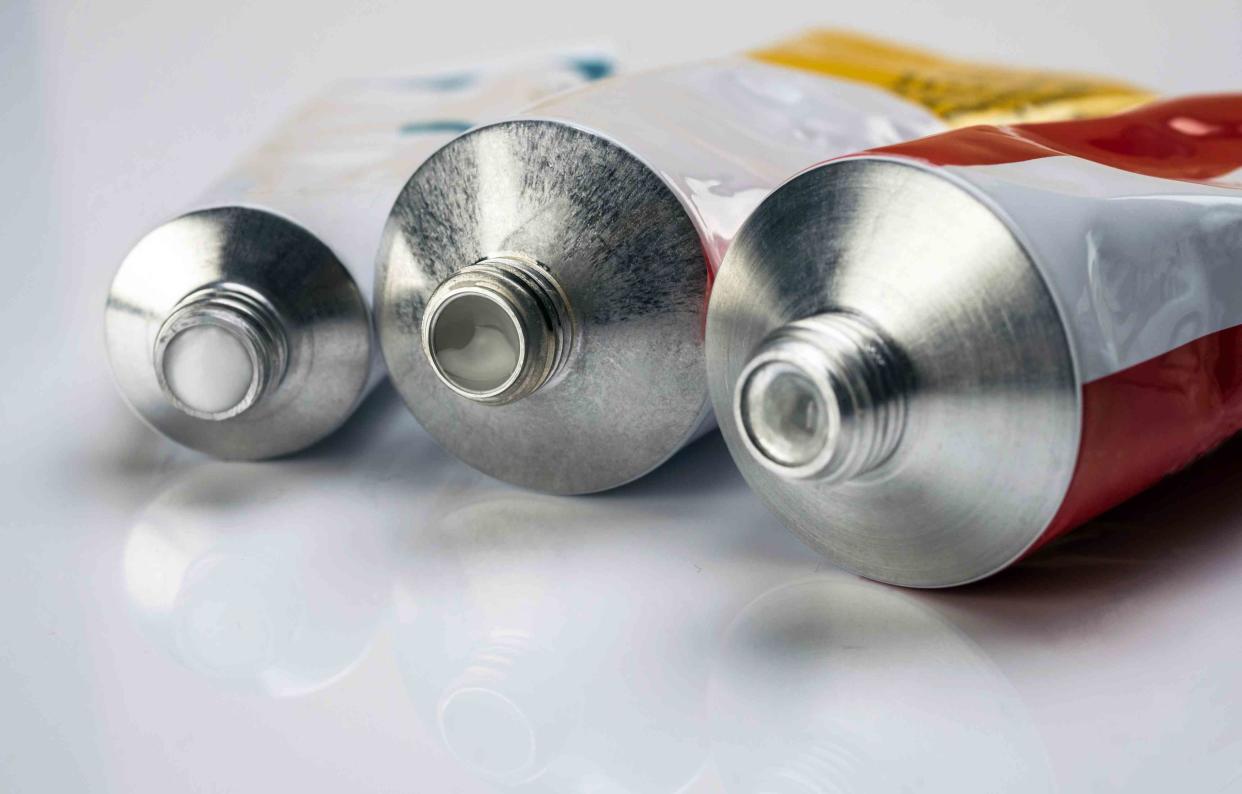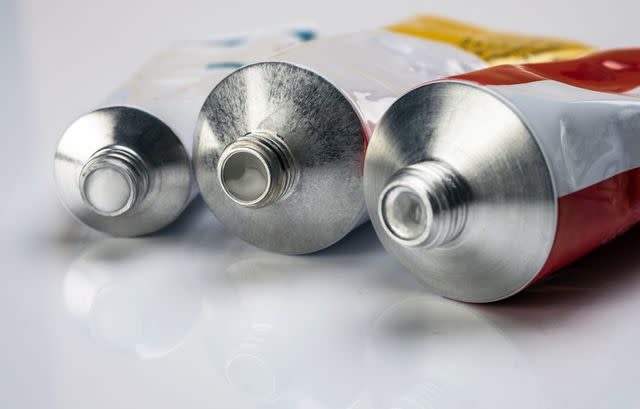Guide to Genital Lichen Sclerosus Treatment

DIGICOMPHOTO/SCIENCE PHOTO LIBRARY / Getty Images
Medically reviewed by Susan Bard, MD
While there is no cure for lichen sclerosus, treatment can often help control symptoms, prevent scarring, and reduce the risk of skin cancer.
The genital itching and pain that this problem causes can often be reduced with prescribed steroid ointments. Certain lifestyle routines and self-care can also help reduce symptoms and control flares. Surgery may be needed in severe cases.
This article describes common lichen sclerosus treatments. It also discusses ways to avoid flares and prevent the problem from becoming severe.

DIGICOMPHOTO/SCIENCE PHOTO LIBRARY / Getty Images
Who Treats Lichen Sclerosus?
A lichen sclerosus specialist can determine your condition's most appropriate treatment plan. This may include one or more of the following specialists in a multidisciplinary team approach:
Dermatologist: A specialist in the diagnosis and treatment of skin conditions
Obstetrician-gynecologist (ob-gyn): A specialist in diseases and disorders of the female reproductive system, pregnancy, and childbirth
Primary care provider (PCP): A healthcare provider who is considered your main provider
Urogynecologist: A specialist in treating the female urinary tract, including female pelvic conditions
Urologist: A specialist in diseases and disorders of the urinary tract)
Lichen Sclerosus Treatment: Medications
It is advised to treat all cases of genital lichen sclerosus—even those that are asymptomatic—to preserve your quality of life and prevent scarring. Therapy can also reduce the risk of anatomical, sexual, and urinary dysfunction.
When patches of lichen sclerosus occur in places other than the genital and anal areas, they may get better without treatment.
Medication options are outlined below.
Topical Steriods
A class of prescription drugs called topical steroids is commonly used as the first-line treatment for lichen sclerosus. These medications are prescribed in powerful formulations, categorized as ultra-potent because of their strength. They work against inflammation in your skin.
Ointment vs. Cream
Lichen sclerosus medication can be administered as an ointment or cream, though ointments are advised. Ointments are stronger than creams and do not include the alcohol and preservatives commonly used in creams that can burn or sting irritated skin.
The most common treatment regimen for lichen sclerosus involves topical clobetasol propionate (0.05%) applied over the affected area twice daily for 12 weeks. Research indicates that up to 75% of people using clobetasol for lichen sclerosus achieve relief of symptoms. It may be continued past 12 weeks, as directed, for flares, maintenance therapy, and remission.
Factors such as your age, severity of disease, and area of the body affected help determine which steroid is most appropriate. Other steroids of varying strengths, including the following, may also be used based on your needs:
Elocon (mometasone furoate) (0.1%)
Kenalog (triamcinolone acetonide) (0.5%)
Betanate (betamethasone dipropionate) (0.05%)
Advantan (methylprednisolone aceponate) (0.1%)
Many brands (hydrocortisone) (1%)
Psorcon (diflorasone diacetate) (0.05%)
Ultravate (halobetasol propionate) (0.05%)
Intralesional Steroid Therapy
In some cases of difficult-to-treat lichen sclerosus, one may benefit from an intra-lesional (delivered directly into a skin lesion) steroid injection using Kenalog (triamcinolone acetonide) 2.5–5 milligrams per milliliter (mg/mL).
Topical Calcineurin Inhibitors
Topical calcineurin inhibitors are sometimes used as an off-label treatment if your lichen sclerosus is intolerant or unresponsive to a topical steroid. These drugs, which are applied once or twice daily for one to two months, include the following:
Protopic (tacrolimus) (0.1%)
Elidel (pimecrolimus) (1%)
Retinoids
Topical retinoids may provide a useful alternative to steroids in treating lichen sclerosus. Research shows that retin-A cream (tretinoin) (0.025%) applied for six months may provide an alternative to steroids, though it is not as effective as first-level steroids.
Lichen Sclerosus and Circumcision
Circumcision (removal of the foreskin) is often curative in the early stages of uncomplicated lichen sclerosus in men. This can leave the penis susceptible to phimosis, a condition in uncircumcised males in which the foreskin is tight and unable to retract. Circumcision is reported to be effective in more than 75% of men with lichen sclerosus.
Learn More: Understanding How Topical Steroids Work
Lichen Sclerosus Treatment Through Self-Care
Lichen sclerosus self-care involves good hygiene and other strategies that reduce irritation and ease symptoms of skin irritation and pain, including:
Avoid scratching the affected area.
Apply petroleum jelly, emollients, or moisturizers (Aquaphor, Vaseline, others), to the affected area.
Use mild unscented soaps daily to gently wash the affected area and pat dry.
Avoid bathing too often.
Bathe in the morning and at night with water, not scented bath products, to ease burning and pain.
Don't apply soap directly to your genitals.
Take an oral antihistamine at bedtime to help control itching during sleep.
Use soft, dye-free, unscented toilet paper.
Avoid scented detergents, tight-fitting pants, pantyhose, and other irritants.
Wear cotton underwear instead of synthetic underwear.
Cleanse your vulva with your fingertips and pat it dry after washing.
Holistic Approach to Lichen Sclerosus Treatment
A holistic approach to lichen sclerosus treatment involves therapies that are not always considered part of traditional medicine. This approach addresses the whole person with treatment that helps you take responsibility for your own well-being so you can support traditional treatments.
This can include the following:
Dietary Modifications
Foods that are high in oxalates (an organic compound found in plants) can lead to the worsening of symptoms. Studies indicate the following foods with high oxalate levels may be linked to worsening symptoms of lichen sclerosus:
Spinach
Potatoes
Nuts
Cocoa
Beets
Turnip
Canned and boxed food items
Patient Education
People who have lichen sclerosus may be counseled to take the following steps to improve their treatment results:
Begin self-care strategies to reduce symptoms.
Reduce the risk of developing vulvar cancer by learning to notice changes in skin color, texture, or ulcers
Follow through with treatment of asymptomatic lichen sclerosus to prevent scarring that could lead to sexual and urinary problems.
Psychosexual Counseling
Psychosexual counseling can cause impairment in the areas of intimate relationships, sexuality, and mental health. It can affect your overall quality of life and general happiness. Research indicates that psychosexual counseling can significantly improve the sexuality, quality of life, and well-being of women who receive this type of treatment.
Herbal Therapies
Herbal therapies and complementary medicines may provide some relief of symptoms of inflammatory diseases. The following agents have had variable results in improving symptoms:
Aloe vera
Arnica
Avocado
Calendula
Chamomile
Coconut oil
Shea butter
When Does Lichen Sclerosus Require Surgical Treatment?
Surgery is regarded as a second-line therapy for lichen sclerosus in both women and men.
In women, surgical treatment for lichen sclerosus may be required for the following circumstances:
Correct scarring from lichen sclerosus that interferes with the normal function of the vulva, urinary system, and/or cosmetic appearance of the genital area
Treat vulvar intraepithelial neoplasia (changes in the epithelial cells in the top or surface layer of skin that cover the vulva, often a precursor of cancer) or malignant tumor
In men, surgical treatment is reserved for circumcision in uncircumcised men when very strong topical steroids and other first-line treatments are ineffective.
Second-Line Therapies
While not regarded as first-line treatments, research indicates that the following therapies have proven to relieve some symptoms of lichen sclerosus:
Photodynamic therapy (use of topical 10% 5-ALA cream (5-aminolevulinic acid)
Cryotherapy (use of extreme cold to manage inflammation)
Platelet-rich plasma (PRP) (injection of platelet cells taken from your blood to help in healing)
Ongoing Lichen Sclerosus Treatment and Preventive Measures
Lichen sclerosus is an incurable condition that requires lifelong maintenance. Without treatment or self-care, it can cause serious complications.
Treatment can reduce and potentially eliminate symptoms, though periodic flares are always possible. This disease requires following a treatment regimen that involves monitoring your body for signs of disease progression.
Maintenance therapy for lichen sclerosus can include the following regimen:
Reduction of the dosage and/or strength of initial steroid treatment
Intermittent use of ultra-potent steroids to treat flares
Use of tacrolimus ointment on weekends after initial steroid treatment is discontinued
Use of emollients to soften and protect skin from cracks, lubricate the affected areas during sexual intercourse, and substitute for soap
Regular check-ups with your healthcare provider every three to six months for two years, then annually, or as advised
Healthy self-care practices that involve avoiding irritants to help prevent a recurrence
Summary
Lichen sclerosus is a chronic skin disease that can cause itching and pain. While it can affect any body part, the disease often involves your genitals and the area around them.
Without treatment, this disease can result in changes that affect the normal function of your urinary system and sexual performance. This can impact your quality of life.
The first-line treatment involves the use of a very potent steroid ointment. Lifelong follow-up and care are needed since flares can occur even after you control symptoms. When scarring occurs, surgery may be advised.
Early treatment of this disease can help prevent problems like scarring. Lifetime care and follow-up are needed to reduce your risk of flares.

